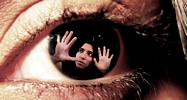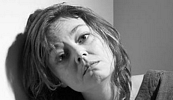|
|
 Acne (1,500) Acne (1,500)
 Addictions (1,500) Addictions (1,500)
 Advice (1,500) Advice (1,500)
 Allergies (1,092) Allergies (1,092)
 Alternative Medicine (1,500) Alternative Medicine (1,500)
 Anti Aging (1,500) Anti Aging (1,500)
 Breakup (1,500) Breakup (1,500)
 Cancer (1,499) Cancer (1,499)
 Dental Care (1,500) Dental Care (1,500)
 Disabilities (1,500) Disabilities (1,500)
 Divorce (1,500) Divorce (1,500)
 Elderly Care (1,498) Elderly Care (1,498)
 Goal Setting (1,500) Goal Setting (1,500)
 Hair Loss (1,500) Hair Loss (1,500)
 Health and Safety (1,497) Health and Safety (1,497)
 Hearing (1,500) Hearing (1,500)
 Law of Attraction (1,499) Law of Attraction (1,499)
 Marriage (1,500) Marriage (1,500)
 Medicine (1,497) Medicine (1,497)
 Meditation (1,499) Meditation (1,499)
 Men's Health (1,500) Men's Health (1,500)
 Mental Health (1,500) Mental Health (1,500)
 Motivational (1,500) Motivational (1,500)
 Nutrition (1,495) Nutrition (1,495)
 Personal Injury (1,499) Personal Injury (1,499)
 Plastic Surgeries (1,500) Plastic Surgeries (1,500)
 Pregnancy (1,496) Pregnancy (1,496)
 Psychology (1,500) Psychology (1,500)
 Public Speaking (1,500) Public Speaking (1,500)
 Quit Smoking (1,500) Quit Smoking (1,500)
 Religion (1,499) Religion (1,499)
 Self Help (1,500) Self Help (1,500)
 Skin Care (1,500) Skin Care (1,500)
 Sleep (1,500) Sleep (1,500)
 Stress Management (1,500) Stress Management (1,500)
 Teenagers (1,492) Teenagers (1,492)
 Time Management (1,500) Time Management (1,500)
 Weddings (1,500) Weddings (1,500)
 Wellness (1,500) Wellness (1,500)
 Women's Health (1,500) Women's Health (1,500)
 Women's Issues (1,500) Women's Issues (1,500)
|
How can you tell if someone is lying? You can't, say some scientists - at least not with any consistency. That is what their research shows anyhow. But the research done in this area is often flawed in several important ways. Here are a couple of these flaws.
Lying In A Lab Is Not The Same
"People are very good liars when nothing is at stake," says Aldert Vrij of the University of Portsmouth in England. "But a lab setting is not real life." He is referring to the fact that most experiments on lie-detection have researchers telling subjects when to lie. The lies told have no real effect on subject's lives - there are no meaningful rewards or punishments involved.
Vrij sought to correct this deficiency in the research by looking at real-life police interrogation videos. This made for more relevant research, he figured. After all, we don't really care if we can or can't detect "pretend lies" in a laboratory. What we want is the ability to detect lies in real life.
Vrij concentrated on cases where the true facts were later determined. This way, he knew when the subjects were lying or telling the truth. What did he find? He found that there were fairly reliable clues to whether a person is lying, but that these are not universal. They are individual indicators.
One person might, for example, consistently avert his gaze when lying, while another might have greater eye-contact when lying. Since most research doesn't test for these individual factors, the results seem to indicate that lie-detecting isn't viable. In reality, a person who takes into account the individuals habits and patterns of behavior can detect lies better.
Researchers Ignore Lie Detection Examples
Often researchers ignore real-life examples of lie detection skills. Some people do have the ability to detect lies with consistency.
Maureen O'Sullivan of the University of San Francisco, in many studies of federal agents, forensic psychologists, and other groups of professionals, has found that a small percentage can consistently detect lying with 80% accuracy or higher. Out of 13,000 people she tested, only 15 consistently performed at this level, but the very fact that some can do this well suggests that there are things we can learn to improve our own lie-detecting abilities.
Keep in mind that although this is a small number of people who detect lies, they do it consistently. That means that they aren't just getting lucky. Also, they were able to do this with strangers who they knew nothing about. How many more people would be able to detect lies if they could first observe the liars and learn a little about them?
Can you tell if someone is lying? Why not ignore the flawed research of overly-skeptical scientists, and find out for yourself?
|
|
|



